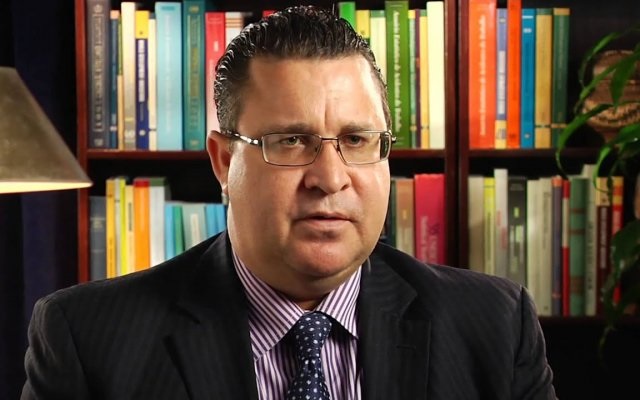Pierre Frank Laporte
THE WORLD Bank Country Director for Ghana, Pierre Frank Laporte, says Ghana will receive US$600 million as balance of payments support for its budget next year, if the country is able to meet all criteria set out for it by the institution.
According to him, this amount will represent between 30% and 40% of the US$1.5 billion contained in Ghana’s envelope with the bank for the next three years.
Speaking in an interview with TV3 yesterday, Mr. Laporte, who has additional responsibilities over Liberia and Sierra Leone, said the receipt of the amount is predicated on meeting the “hard and soft rules” of the World Bank.
The country has suffered in recent years from recurrent macroeconomic instability, linked to election and commodity cycles, an energy crisis, and a financial sector weakened by high levels of non-performing loans (NPLs) and insolvency of financial institutions.
The World Bank boss said a stable macroeconomic environment is necessary to underpin private sector growth and job creation as the country addresses the COVID-19 recovery challenge, calling on the government to accelerate the pace of Ghana’s programme with the International Monetary Fund (IMF).
“There is an urgency. Ghana needs to tackle these problems with urgency. What is happening in the last few months is that inflation has gone up partly because of what is happening outside, but also partly because the currency has depreciated.
“From where I sit, if nothing happens, it will be very difficult for Ghana to find another way out. Domestic debt structuring is very difficult. Why? Because typically banks will invest in government papers, bonds and when you ask banks to take care of stuff like that it affects the capital adequacy and it puts these banks at risk, while international debts are easy to reschedule or restructure,” he stated.
Medium-Term Strategy
The government set out priorities for economic and social development, which were inspired by the 2017 “Ghana Beyond Aid” vision by the Coordinated Programme of Economic and Social Development Policies (CPESDP) 2017–2024.
The vision rests on five pillars: (a) enhancing domestic revenue mobilisation without undermining productive activities or distorting private incentives for work; (b) encouraging higher private savings as a source of loanable funds to support domestic credit and capital markets; (c) pursuing more transparent, prudent, and accountable use of public resources; (d) leveraging resources in more innovative ways than the conventional model of royalty and tax regimes; and (e) adopting innovative ways to mobilise and use external resources.
The CPESDP laid out the target to at least double GDP per capita between 2017 and 2024, an ambitious goal that would entail achieving average annual economic growth rates of at least 7.2 per cent between 2017 and 2024.
Focus
The plan focuses on reviving and strengthening manufacturing, solving Ghana’s energy crisis, and aggressively promoting exports.
A Medium-Term Development Policy Framework (2022-2025) was under preparation when the Russia-Ukraine war began.
The government prepared the medium-term Ghana CARES programme to support a quick recovery from the COVID-19 pandemic and build a more resilient economy.
The CARES programme sets out a GHȼ100 billion strategy in two phases with one being a “Stabilisation Phase” from July to December 2020 to ensure food security, strengthen the health system, attract private investments and support Ghanaian business and protect worker incomes.
The second one is a medium-term (2021-2023) “Revitalisation Phase” to accelerate the Ghana Beyond Aid agenda through enabling investments and support to recover, revitalise and support strategic industries, harness new opportunities and safeguard the economy against future shocks.
It is not clear whether the government will continue to pursue the competitive import substitution policy it programmed in the face of challenges as a way to ease the constraints in agriculture, agri-business, and industry, to increase productivity for a fast-track recovery with the creation of decent employment.
This envisions structural reforms in the business environment to support economic diversification and plans to refocus key government flagship programmes for increased efficiency, leverage digitisation and advance financial sustainability.
BY Ernest Kofi Adu

